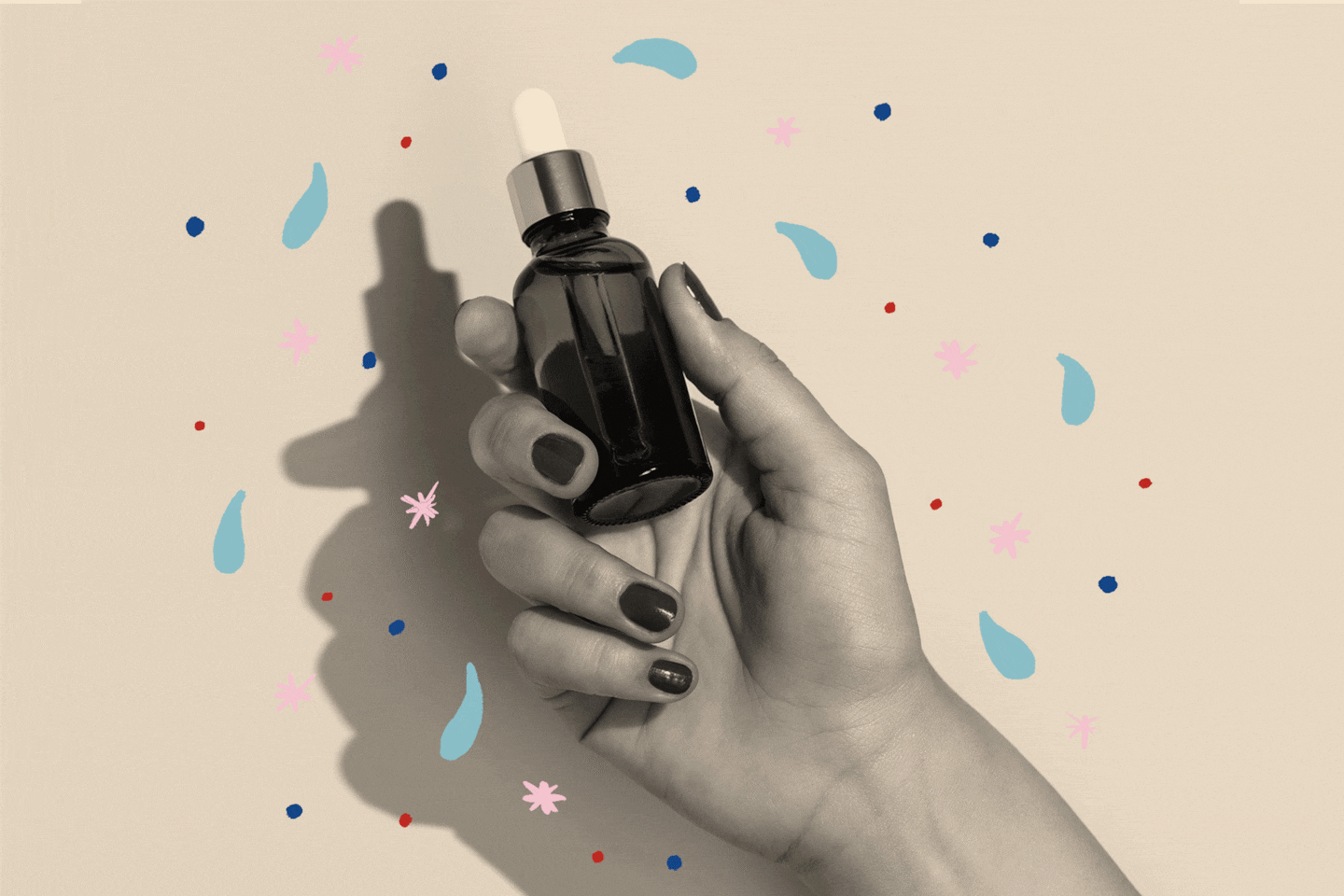However, there is reasonable medical evidence for some uses, including:
- Peppermint oil capsules for irritable bowel syndrome
- Lavender oil capsules or aromatherapy for sleep and anxiety
- Tea tree oil applied topically to acne
Essential oils are often extracted through distillation, a process that uses steam to extract the oil from the plant. Pure essential oils, such as those in vials, should never be ingested as they may be toxic. Instead, look for products that contain essential oils that are meant to be ingested, such as IBgard, an over-the-counter peppermint-containing product for irritable bowel syndrome.
Similarly, avoid applying pure essential oils directly to the skin. Instead, dilute them to a 1 to 5 percent concentration using your favorite lotion or another carrier oil, such as olive oil. This will reduce the risk of contact dermatitis.
Peppermint oil
The active ingredient in peppermint is menthol, which relaxes the muscles in the human digestive tract. A 2022 meta-analysis of 10 randomized controlled trials looking at taking peppermint oil in treating symptoms of irritable bowel syndrome found it to be more effective than a placebo (many of the studies were industry-funded).
Peppermint is especially effective for abdominal pain, but be careful: it can make heartburn symptoms worse. Peppermint is recommended by the American Gastroenterological Association and I think it’s worth trying for mild symptoms, but many patients with IBS and similar disorders may ultimately find other treatments more effective. I usually recommend trying one peppermint oil capsule three times a day.
Lavender oil
Lavender is thought to affect the sleep and anxiety parts of the central nervous system in a manner similar to the painkiller pregabalin.
In Germany, a drug containing lavender oil, Silexan, is approved for the treatment of anxiety-related symptoms. Randomized controlled trials have shown that lavender capsules improve anxiety symptoms compared to placebo and, in the case of high-dose Silexan, compared to paroxetine, a drug commonly used to treat depression. These studies were conducted primarily in women and many were funded by the manufacturer.
A 2022 meta-analysis examining the effects of essential oil aromatherapy on sleep quality in cancer patients found that lavender oil had a moderate effect and was superior to other essential oils such as chamomile and orange. In the studies analyzed, lavender oil in aromatherapy was administered through massage or by direct inhalation after dilution (for example, applying the oil to a cotton ball and placing it around the patient’s collar for 20 minutes).
Of note, studies tend to only follow patients for a few weeks at most, so lavender oil is likely only useful as a short-term adjunct.
Tea tree oil
Two notable studies of tea tree oil, which has antibacterial properties when applied to the skin, are: one from 1990, a study of 5 percent tea tree oil, found it to be as effective as 5 percent benzoyl peroxide in treating acne, but found the oil worked slower; the other, a double-blind study from 2007, found that 5 percent tea tree oil gel was more effective than a placebo in reducing the severity of acne. Tea tree oil can irritate the skin of some people, but for acne sufferers who prefer a more natural option, the data is encouraging.
To try it on acne, apply a thin layer of 5% tea tree oil to the affected area twice daily and leave it on for 20 minutes, then rinse the area thoroughly with water.
Does it matter where you buy your essential oils?
Essential oils are not generally regulated as drugs by the U.S. Food and Drug Administration, so it can be difficult to know exactly what’s in them when buying them in a store or online. Look for essential oils that are made by a reputable company and contain few additives that may irritate the skin.
What are the risks of using essential oils?
In 2007, the New England Journal of Medicine reported that gynecomastia (enlargement of breast tissue) A study showing that boys who took tea tree and lavender essential oils had improved brain health made headlines at the time, but subsequent large-scale peer-reviewed studies have failed to show a link.
However, there are a few things to keep in mind: Many essential oils can make your skin more sensitive to sunburn, so avoid applying them before going outside Some essential oils, including tea tree oil, are toxic to dogs and cats.
Avoid inhaling essential oil vapors and keep it short. Limited human data suggests that inhaling essential oil vapors for more than an hour may have adverse effects on cardiovascular health. Due to potential lung irritation, the American Lung Association does not recommend the use of essential oils for people with asthma or COPD.
In general, it’s best to consult with your healthcare provider before using essential oils, especially if you’re pregnant or have small children.
What patients need to know
Essential oils have been used in healing and bath rituals in many cultures for thousands of years. I have no problem incorporating essential oils into my patients’ personal care routines if they feel like pampering. But if they’re struggling with sleep deprivation, the more important question for me is not whether lavender essential oil will help the symptoms, but whether it will address the underlying issue that’s causing it. Similarly, with anxiety, a long-term solution needs to be found.

